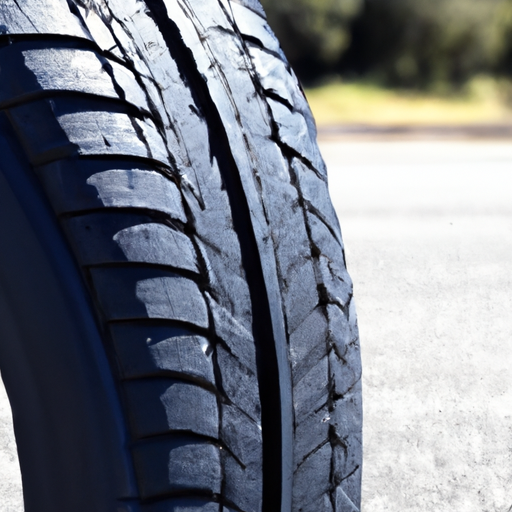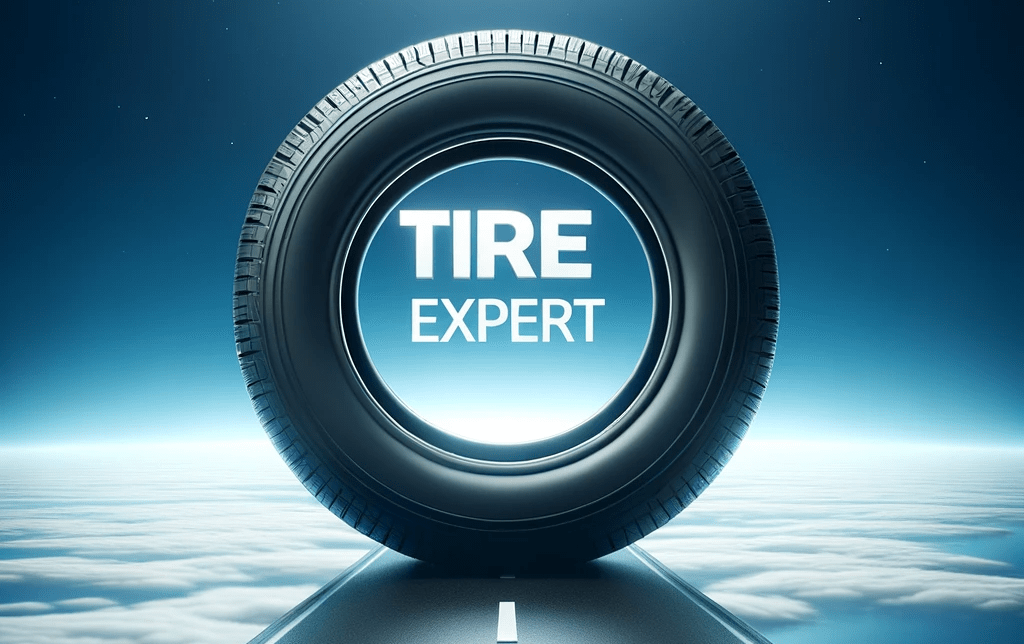Planning a long road trip this summer? Before hitting the open road, it’s essential to ensure your vehicle is equipped with the right tires. The question on many drivers’ minds is, “Are summer tires suitable for long road trips?” In this article, we will explore the pros and cons of using summer tires on extended journeys, discussing their performance, safety, and overall suitability for those miles of adventure ahead. So fasten your seatbelt and join us as we explore whether summer tires are the perfect match for your upcoming road trip escapades.
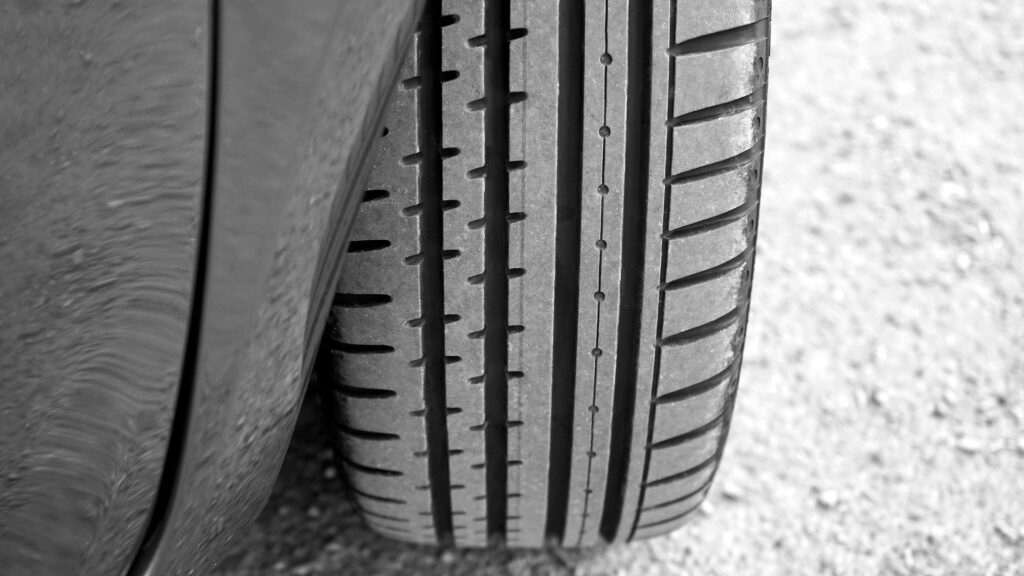
Benefits of Summer Tires
Enhanced Performance in Warm Weather
When you embark on a long road trip during the summer season, you want your tires to perform at their best. Summer tires are specifically designed to excel in warm weather conditions, providing superior performance compared to other tire types. These tires are made from a special rubber compound that remains flexible and grips the road even at higher temperatures. This enhanced performance translates into better handling, improved braking, and increased stability on hot and dry roads.
Improved Handling and Traction
One of the key benefits of summer tires is their exceptional handling and traction capabilities. These tires have unique tread patterns and designs that are optimized for warm weather conditions, allowing for efficient steering response and precise control. With summer tires, you can confidently maneuver your vehicle around twists and turns, providing a smoother and more enjoyable driving experience. Additionally, the increased grip and traction help optimize your vehicle’s acceleration, ensuring efficient and safe driving on summer road trips.
Reduced Risk of Hydroplaning
Summer road trips often involve encountering sudden rainstorms or passing through areas with wet roads. Summer tires are designed with grooves and channels that effectively disperse water, reducing the risk of hydroplaning. Hydroplaning occurs when a layer of water builds up between the road surface and the tires, causing loss of control. With summer tires, you can have peace of mind knowing that your tires are equipped to handle wet conditions and minimize the chances of hydroplaning, ensuring a safe and comfortable journey.
Better Fuel Efficiency
Another advantage of summer tires is their ability to improve fuel efficiency. These tires are designed with lower rolling resistance, meaning they require less energy to maintain forward motion. This reduced rolling resistance translates into improved fuel economy, allowing you to go farther on a tank of gas. With the cost of fuel consistently on the rise, choosing summer tires for your long road trips can save you money and make your journey more eco-friendly.
Considerations for Long Road Trips
Weather Conditions
When planning a long road trip, one of the key considerations is the weather conditions you are likely to encounter along your route. Summer tires are specifically designed to perform in warm weather, so they may not be the best choice if you anticipate encountering cooler temperatures or inclement weather. It is important to evaluate the forecasted weather conditions and consider alternative tire options, such as all-season or winter tires, if necessary.
Road Conditions
The condition of the roads you will be traveling on is another factor to consider when choosing summer tires for a long road trip. If your route includes sections of poorly maintained or unpaved roads, summer tires may not provide the necessary grip and durability. In such cases, all-season tires or tires with more aggressive tread patterns may be a more suitable choice to ensure optimal performance and safety.
Length of Trip
The length of your road trip can also impact the choice of tires. If you are going on a shorter trip, summer tires may be suitable due to their enhanced performance in warm weather. However, for longer trips that involve various road and weather conditions, considering all-season tires or performance winter tires may be a more practical choice. These tire options provide a balance between performance and versatility, ensuring optimal performance throughout your entire journey.
Driving Habits
Your driving habits also play a role in determining the suitability of summer tires for your long road trip. If you are a cautious and attentive driver who adheres to speed limits and avoids aggressive maneuvers, summer tires may be a good fit. However, if you tend to drive more aggressively or push the limits of your vehicle, you may want to consider tires with a higher performance rating that can handle the demands of spirited driving.
Potential Drawbacks of Summer Tires
Limited Performance in Cold Weather
Despite their numerous benefits, summer tires have limitations when it comes to cold weather conditions. The rubber compound used in summer tires hardens when temperatures drop, resulting in reduced traction and compromised performance. If you plan on encountering cold weather during your long road trip, it is advisable to switch to all-season or winter tires that are specifically designed to perform in suboptimal temperatures.
Decreased Traction on Snow and Ice
Similar to the limited performance in cold weather, summer tires also lack traction on snowy and icy surfaces. The tread patterns of summer tires are optimized for warm weather conditions and do not provide the necessary grip on slippery surfaces. It is crucial to prioritize safety and choose tires that are capable of maintaining traction and control on snow and ice, such as winter tires or all-season tires with the “snowflake” symbol.
Higher Wear Rate
Due to their softer rubber compound, summer tires tend to have a higher wear rate compared to other tire types. The enhanced grip and traction come at the cost of increased tire wear. This means that summer tires may need to be replaced more frequently, especially if you regularly travel long distances or drive aggressively. It is important to be mindful of the tread depth and overall condition of your summer tires to ensure optimal performance and safety throughout your road trip.
Possibility of Blowouts
Summer tires, especially when used beyond their recommended lifespan or underinflated, can be prone to blowouts. Blowouts can occur when the tire’s internal pressure exceeds its structural strength, causing the tire to burst suddenly. To minimize the risk of blowouts, it is essential to regularly inspect your summer tires for signs of wear, maintain proper tire pressure, and avoid overloading your vehicle. Additionally, packing a spare tire and tire repair kit can provide a temporary solution in case of emergency.
Factors to Consider Before Choosing Summer Tires
Geographical Location
Your geographical location plays a significant role in determining the suitability of summer tires for long road trips. If you reside in a region with consistently warm weather and minimal chances of encountering cold or snowy conditions, summer tires can be a suitable choice. However, if you live in an area with unpredictable weather or experience extreme temperature fluctuations, considering all-season tires or winter tires may be a safer and more practical option.
Expected Weather Conditions
In addition to geographical location, it is important to consider the expected weather conditions during your long road trip. If you anticipate consistently warm and dry weather, summer tires can provide optimal performance. However, if there is a possibility of encountering rain, cold temperatures, or snow along your route, it is advisable to choose tires that are specifically designed to handle those conditions.
Driving Frequency and Style
Your driving frequency and style also influence the suitability of summer tires. If you frequently embark on long road trips during the summer season and enjoy spirited driving, summer tires can provide the performance and handling you desire. However, if you primarily use your vehicle for daily commuting or have a more conservative driving style, all-season tires may be a more practical choice that balances performance and versatility.
Budget
Budget is an important factor to consider when choosing tires for your long road trips. Summer tires, with their specialized design and performance-enhancing features, can be more expensive compared to other tire options. It is crucial to evaluate your budget and determine how much you are willing to invest in tires. Consider the overall cost of ownership, including potential tire replacements and maintenance, to make an informed decision that aligns with your financial situation.

Alternatives to Summer Tires
All-Season Tires
If you are seeking a versatile tire option that performs well in various weather conditions, all-season tires can be a suitable alternative to summer tires. These tires are designed to provide adequate performance and safety throughout the year, offering a balance between summer and winter tire capabilities. All-season tires feature tread patterns and rubber compounds that are optimized for both warm and cold weather, ensuring reliable traction and handling in a variety of road conditions.
Performance Winter Tires
For those planning long road trips during the winter season or in regions with heavy snowfall, performance winter tires are an excellent alternative to summer tires. These tires are specifically designed to handle icy and snowy conditions, providing enhanced traction and control. Performance winter tires feature aggressive tread patterns, specialized rubber compounds, and additional siping for improved grip on slippery surfaces. If your road trip involves traversing through challenging winter conditions, investing in performance winter tires can ensure optimal safety and performance.
Preparing Summer Tires for Long Road Trips
Check Tread Depth and Wear
Before embarking on a long road trip with summer tires, it is crucial to check the tread depth and overall wear of the tires. The legal tread depth limit is typically 2/32 of an inch, but it is recommended to have at least 4/32 of an inch for optimal performance and safety. Use a tread depth gauge or a penny to check the depth, ensuring that the tread pattern is not excessively worn or unevenly worn. If the tread depth is insufficient, it may be necessary to replace the tires before your road trip.
Ensure Proper Tire Pressure
Proper tire pressure is essential for maintaining optimal performance and safety. Before setting off on your long road trip, check the recommended tire pressure for your specific summer tires and ensure that they are inflated accordingly. Overinflated or underinflated tires can negatively impact handling, fuel efficiency, and tire wear. Regularly monitor tire pressure throughout your journey to account for any changes due to temperature fluctuations or increased loads.
Inspect for Damage or Debris
A thorough visual inspection of your summer tires before a long road trip is crucial to identify any visible damage or debris that may affect their performance. Look for signs of cracking, bulges, cuts, or punctures on the tire sidewalls or treads. Remove any debris, such as stones or nails, that may be lodged in the tire treads. It is important to address any damage or debris to prevent further deterioration or potential tire failure during your trip.
Consider Rotating and Balancing
Rotating and balancing your summer tires before a long road trip can help ensure even wear and optimal performance. Regular rotation involves switching the tires’ positions to distribute the wear evenly across all four tires. Balancing involves adjusting the weight distribution of the tires and wheels to minimize vibrations and maximize comfort. These maintenance procedures can extend the lifespan of your tires and enhance their overall performance, providing a smooth and safe road trip experience.
Pack a Spare Tire and Tire Repair Kit
In anticipation of unforeseen tire emergencies, it is prudent to pack a spare tire and a tire repair kit for your long road trip. A spare tire allows you to continue your journey in case of a flat tire, while a tire repair kit can provide a temporary fix for minor punctures. Familiarize yourself with the procedure for changing a tire and ensure that the spare tire is properly inflated. Additionally, carry essential tools, such as a jack and lug wrench, to facilitate tire changing if needed.
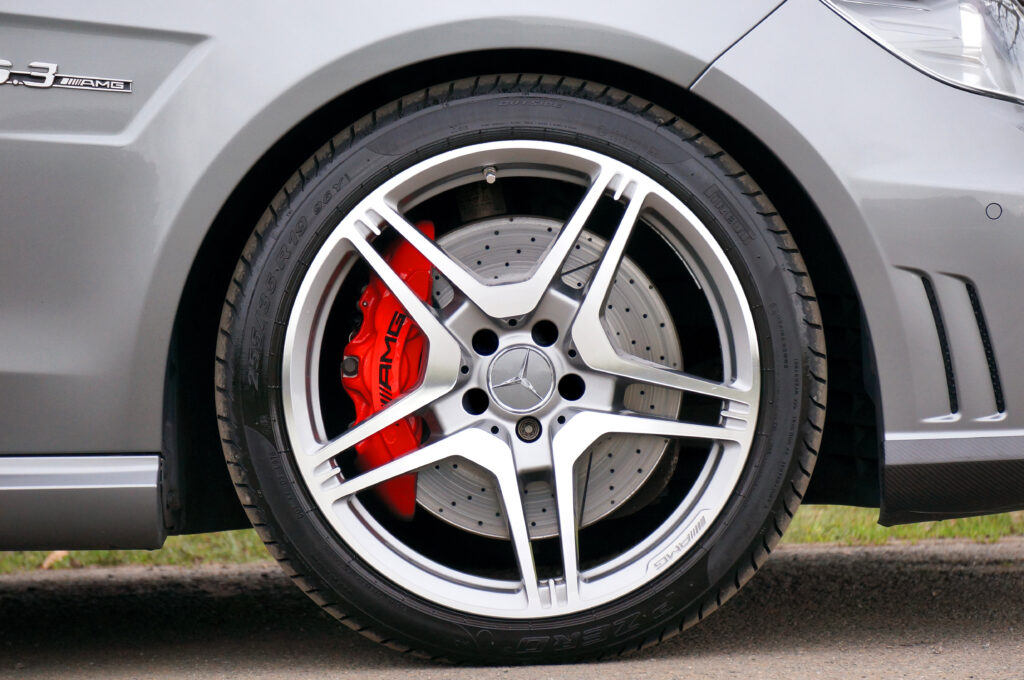
Expert Opinion on Summer Tires and Long Road Trips
Input from Automotive Experts
Automotive experts often provide valuable insights and recommendations regarding tire choices for long road trips. Many experts suggest that summer tires can be a great option for road trips during the warm season, as they are specifically designed to perform optimally in such conditions. They emphasize the importance of considering the weather conditions, road conditions, and driving habits when making tire decisions. Seeking advice from reputable automotive experts can help you make an informed choice that ensures both performance and safety.
Manufacturer Recommendations
Another reliable source of information regarding summer tires and long road trips is the tire manufacturers themselves. Manufacturers often provide detailed specifications and recommendations for their tire models, taking into account factors such as weather conditions, road conditions, and driving style. It is advisable to consult the manufacturer’s recommendations and guidelines before choosing summer tires for your long road trips. This can help you make a decision that aligns with the expertise and expertise of the tire manufacturer.
Real-World Experiences of Using Summer Tires on Long Road Trips
Personal Stories and Testimonials
Real-world experiences from individuals who have used summer tires on long road trips can provide valuable insights into their suitability. Many travelers have shared positive experiences of using summer tires, highlighting their enhanced performance, handling, and grip on warm and dry roads. However, it is important to also consider the experiences of those who have encountered challenges with summer tires during unexpected weather conditions. Learning from personal stories and testimonials can help you gain a well-rounded perspective and make an informed decision based on your specific needs.
Online Community Discussions
Online communities and forums dedicated to automotive enthusiasts are excellent platforms to find discussions and opinions on summer tires and long road trips. These platforms allow individuals to share their experiences, ask questions, and seek advice from fellow enthusiasts. Engaging in these discussions can provide insights into the pros and cons of summer tires, as well as alternative options that may be more suitable for your specific road trip requirements. It is important to consider multiple viewpoints and evaluate their relevance to your situation before making a final decision.
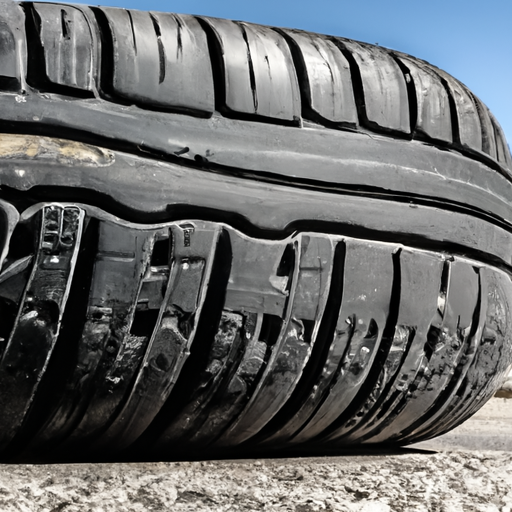
Tips for Safe and Comfortable Long Road Trips with Summer Tires
Plan Ahead for Tire Emergencies
While summer tires provide numerous benefits, it is essential to plan ahead for potential tire emergencies during your long road trip. Familiarize yourself with the procedure for changing a tire and ensure that you have the necessary tools and equipment. Additionally, it is wise to have a roadside assistance service or access to emergency tire repair services in case of more severe tire issues. By being prepared, you can minimize disruptions and ensure a safe and smooth journey.
Adjust Driving Style to Road Conditions
To maximize safety and performance with summer tires during your long road trip, it is crucial to adjust your driving style to the prevailing road conditions. Always adhere to speed limits and drive defensively, especially in unfamiliar areas. Adjust your following distance and give yourself ample time to brake and react to potential hazards. By driving cautiously and being aware of the road conditions, you can mitigate risks and enjoy a comfortable journey.
Regularly Check Tire Pressure and Condition
Monitoring tire pressure and checking the overall condition of your summer tires during your road trip is essential for optimal performance and safety. As temperature fluctuations can affect tire pressure, make it a habit to check the tire pressure regularly, ideally before each day’s journey begins. Additionally, visually inspect your tires for any signs of damage or wear, such as cuts, bulges, or uneven wear patterns. By staying vigilant and addressing any issues promptly, you can maintain the performance and longevity of your summer tires.
Keep Emergency Supplies in the Vehicle
It is advisable to carry essential emergency supplies in your vehicle during a long road trip, regardless of the type of tires you are using. Pack a first aid kit, emergency contact information, a flashlight, and basic tools such as a tire pressure gauge and jumper cables. Additionally, consider carrying extra water, non-perishable food, and blankets in case of unexpected delays or emergencies. By being prepared with these supplies, you can ensure the safety and comfort of everyone on the road trip.
Conclusion
In conclusion, summer tires offer numerous benefits for long road trips during the warm season. Enhanced performance in warm weather, improved handling and traction, reduced risk of hydroplaning, and better fuel efficiency make summer tires an attractive choice for summer road trips. However, it is important to consider weather conditions, road conditions, the length of the trip, and driving habits when making tire choices. Summer tires have limitations in cold weather and on snow and ice, and they tend to have a higher wear rate. Several factors, such as geographical location, expected weather conditions, driving frequency and style, and budget, should be considered before choosing summer tires. All-season tires and performance winter tires are suitable alternatives to summer tires based on specific road trip requirements. Proper preparation of summer tires, such as checking tread depth and wear, ensuring proper tire pressure, inspecting for damage or debris, and considering tire rotation and balancing, can optimize their performance. Expert opinions, real-world experiences, and community discussions can provide valuable insights when making tire choices. Following tips for safe and comfortable long road trips with summer tires, such as planning for tire emergencies, adjusting driving style to road conditions, regularly checking tire pressure and condition, and keeping emergency supplies in the vehicle, can ensure a smooth and enjoyable journey. Ultimately, it is essential to make an informed decision that prioritizes both performance and safety based on the specific factors and requirements of your long road trip.
